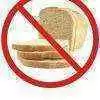-
Welcome to Celiac.com!
You have found your celiac tribe! Join us and ask questions in our forum, share your story, and connect with others.
-
Celiac.com Sponsor (A1):
Celiac.com Sponsor (A1-M):
-
Get Celiac.com Updates:Support Our Content
Grr! Periods Mess Everything Up!
-
Get Celiac.com Updates:Support Celiac.com:
-
Celiac.com Sponsor (A17):
Celiac.com Sponsor (A17):
Celiac.com Sponsors (A17-M):
-
Recent Activity
-
- trents replied to Matthias's topic in Coping with Celiac Disease1
Unexpected gluten exposure risk from cultivated mushrooms
Welcome to the celiac.com communiuty, @Matthias! Yes, we have been aware that this can be an issue with mushrooms but as long as they are rinsed thoroughly it should not be a problem since the mushrooms don't actually incorporate the gluten into their cellular structure. For the same reason, one needs to be careful when buying aged cheeses and products... -
- Matthias posted a topic in Coping with Celiac Disease1
Unexpected gluten exposure risk from cultivated mushrooms
The one kind of food I had been buying and eating without any worry for hidden gluten were unprocessed veggies. Well, yesterday I discovered yet another pitfall: cultivated mushrooms. I tried some new ones, Shimeji to be precise (used in many asian soup and rice dishes). Later, at home, I was taking a closer look at the product: the mushrooms were growing... -
- trents replied to catnapt's topic in Celiac Disease Pre-Diagnosis, Testing & Symptoms9
how much gluten do I need to eat before blood tests?
I might suggest you consider buckwheat groats. https://www.amazon.com/Anthonys-Organic-Hulled-Buckwheat-Groats/dp/B0D15QDVW7/ref=sr_1_4_pp?crid=GOFG11A8ZUMU&dib=eyJ2IjoiMSJ9.bk-hCrXgLpHqKS8QJnfKJLKbKzm2BS9tIFv3P9HjJ5swL1-02C3V819UZ845_kAwnxTUM8Qa69hKl0DfHAucO827k_rh7ZclIOPtAA9KjvEEYtaeUV06FJQyCoi5dwcfXRt8dx3cJ6ctEn2VIPaaFd0nOye2TkASgSRtdtKgvXEEXknFVYURBjXen... -
- Scott Adams replied to SilkieFairy's topic in Celiac Disease Pre-Diagnosis, Testing & Symptoms2
IBS-D vs Celiac
What you’re describing really does not read like typical IBS-D. The dramatic, rapid normalization of stool frequency and form after removing wheat, along with improved tolerance of legumes and plant foods, is a classic pattern seen in gluten-driven disease rather than functional IBS. IBS usually worsens with fiber and beans, not improves. The fact that y... -
- Scott Adams replied to Amy Barnett's topic in Gluten-Free Foods, Products, Shopping & Medications1
Question
Here are some results from a search: Top Liquid Multivitamin Picks for Celiac Needs MaryRuth's Liquid Morning Multivitamin Essentials+ – Excellent daily choice with a broad vitamin/mineral profile, easy to absorb, gluten-free, vegan, and great overall value. MaryRuth's Liquid Morning Multivitamin – Classic, well-reviewed gluten-free liquid mul...
-




Recommended Posts
Archived
This topic is now archived and is closed to further replies.